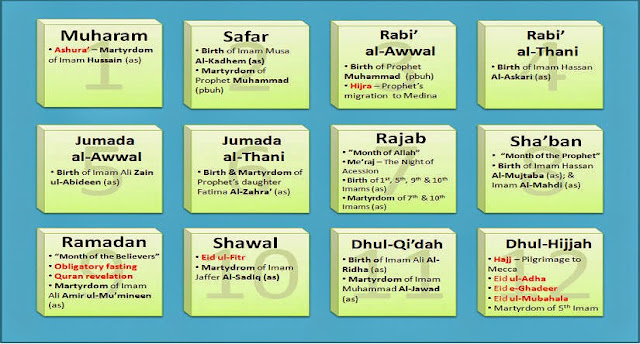Hajj (pilgrimage to Ka’bah, the House of Allah) is one of the five pillars of Islam. It is a form of worship which reflects both the devotion to Allah as well as awe and fear of Him. Although the rituals of Hajj are completed within five stipulated days, as compared with other forms of worship, it has perhaps more particulars than salah. Performance of Hajj is obligatory only once in the life and performers of Hajj hail mostly from foreign lands. Every Muslim man and woman (if physically and economically able) should try to make the pilgrimage to Mecca at least once in their life-time.
Hajj The Fifth Pillar in Islam
Hajj like Salah, Fasting and Zakat is an important cardinal pillar of Islam. It is obligatory once in the whole life on a person who owns that much of wealth which can enable him to travel easily from his house to the holy Makkah and can afford the expenses of his family till his return.
It is to surrender ourselves to Allah’s court just like insane at an appointed and scheduled time, by His virtue and by mimicking the gestures and practices of Ibrahim (AS), to provide evidence of loyalty and commitment towards his tradition and cult, to take part in Ibrahimi emotions and conditions as much as we can, to mold ourselves in his styles and methods, for more details, it can be called that the one of glories and ranks of Allah is that He is the Owner of Majesty and Bounty, the Most Just Ruler and King of the kings, we are His helpless and needy servants as well as His owned and condemned subjects. His another grandeur and glory is that He is entirely characterized by the most complete beautiful qualities, due to which a man falls in love with someone, in this sense, He is the Alone Real Beloved. His first authoritative royal splendor demands that His servants should submit themselves to His court with the utmost humility and respect.
The Hajj is a pilgrimage that occurs during the Islamic month of Dhu al-Hijjah to the holy city of Mecca. Every able-bodied Muslim is obliged to make the pilgrimage to Mecca at least once in their life.
Both men and women are required to make the pilgrimage to Mecca. After a Muslim makes the trip to Mecca, he/she is known as a hajj/hajja (one who made the pilgrimage to Mecca)
The first practical pillar “Salah” out of Islam’s pillars is indeed its special definition and demonstration, in which this quality is dominant. Zakat also shows the other side of the same relation. His second glory and splendor which is the requirement of Lovableness, becomes to light and appears visibly when His servants forsake eating, drinking and desires that are De facto the signs and marks of love and affection.
But Hajj is its full fledge demonstration. Insteadof stitched clothtowearashroud-like dress, to live bare-head, not to have cut hairs, not to trim nails, not to comb hairs, not to use perfume, not to clean the body from dirt, loudly scream (O my Lord, here I am at Your service), to ccircumambulate Ka’bah (Allah’s house), to kiss its black stone, to cling to its wall and door, to cry and sob, to walk between Safa and Marwah, then also get out of the city of Makkah, sometimes to encamp in Mina, then lay down in the deserts of Arafat and Muzdalifah, thereafter, stone Jamarat repeatedly, These all actions are the same that are committed by the love dedicated people. And Ibrahim (AS) is as the founder of this romantic tradition. These sacrifices and actions of Ibrahim are so much liked by Allah that these are decided to be ways of devotion and pillars for the specificattendance to His house (Hajj and Umrah). The collection of these actions is called “Hajj”.
Hadhees About Obligation of Hajj
Abdullah Ibne Abbas (RA) said: The Messenger of Allah (PBUH) who wants to perform Hajj, he should hurry up, because he does not know what kinds of excuses may expose to him. (Musnad Ahmad)
Narrated Ibne ‘Umar (RA): Allah’s Messenger (PBUH) Said:
Islam is based on (the following) five (principles):
1. To testify that none has the right to be worshipped but Allah and Muhammad is Allah’s Messenger (PBUH).
2. To offer the (compulsory congregational) salahs dutifully and perfectly.
3. To pay Zakat (i.e. obligatory charity).
4. To perform Hajj (i.e. Pilgrimage to Makkah)
5. To observe fast during the month of Ramadan. (Bukhari & Muslim)
Abu Hurairah (RA) reported: The Messenger of Allah (PBUH) delivered a Khutbah and said, “O people! Hajj (pilgrimage to the House of Allah) has been made incumbent upon you, so perform Hajj.” A man inquired: “O Messenger of Allah (PBUH) is it prescribed every year?” He (PBUH) remained silent till the man repeated it thrice. Then he (PBUH) said, “Had I replied in the affirmative, it would have surely become obligatory, and you would not have been able to fulfill it.” Afterwards he said, “Do not ask me so long as I do not impose anything upon you, because those who were before you were destroyed on account of their frequent questioning and their disagreement with their Prophets. So when I order you to do something, do it as far as you can and when I forbid you from doing anything, eschew it.” (Muslim)
Abu Hurairah (RA) reported: The Messenger of Allah (PBUH) said, “Whoever performs Hajj just to get the pleasure of Allah and neither committed a sin, nor disputed unjustly (during Hajj), then he returns from Hajj as pure and free from sins as on the day on which his mother gave birth to him.” (Bukhari and Muslim)
Abu Hurairah (RA) reported: The Messenger of Allah (PBUH) said, “(The performance of) ‘Umrah is the expiation for the sins committed between it and the previous ‘Umrah; and the reward of Hajj-e-Mabroor (accepted) is nothing but Jannah.” (Bukhari and Muslim)
It is narrated that ‘Abdullah (RA) said: “The Messenger of Allah (PBUH) said: “Perform Hajj and ‘Umrah consecutively, for they remove poverty and sins as the bellows removes impurity from the iron.’’ (Ibne Majah)
It is narrated that Ayesha (RA) said, “O Allah’s Messenger (PBUH)! We consider Jihad as the best deed. Should we not fight in Allah’s Cause?” He said, “The best Jihad (for women) is Hajj-e-Mabrur (i.e. Hajj which is done according to the Prophet’s tradition and is accepted by Allah).
Jabir (RA) narrated: The Messenger of Allah (PBUH): said “Hajj-e-Mabrur (accepted Hajj) has no reward but the Paradise”, they said: O Prophet of God (PBUH), what is the beneficence of Hajj? He said: “Feeding the people and speaking to them gently” (Ahmad, Tabrani in Al-Ausat and Ibne Khuzaimah in his Sahih)
Hajj The Fifth Pillar in Islam






